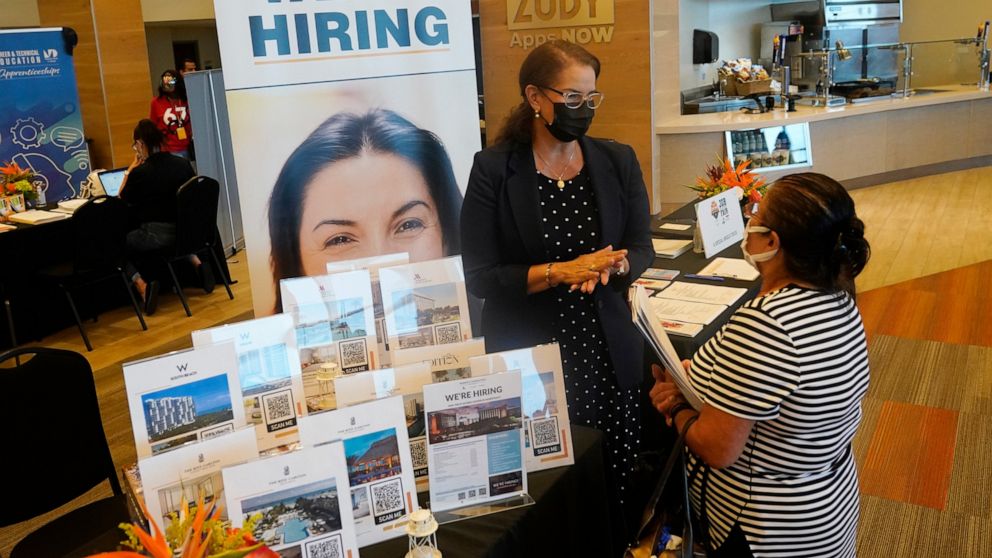US unemployment claims fall to lowest level since pandemic
The number of Americans applying for unemployment benefits fell to its lowest level since the pandemic began, a sign the job market is still improving even as hiring has slowed in the past two months
WASHINGTON — The number of Americans applying for unemployment benefits fell to its lowest level since the pandemic began, a sign the job market is still improving even as hiring has slowed in the past two months.
Unemployment claims dropped 36,000 to 293,000 last week, the second straight drop, the Labor Department said Thursday. That’s the smallest number of people to apply for benefits since the week of March 14, 2020, when the pandemic intensified, and the first time claims have dipped below 300,000. Applications for jobless aid, which generally track the pace of layoffs, have fallen steadily since last spring as many businesses, struggling to fill jobs, have held onto their workers.
The decline in layoffs comes amid an otherwise unusual job market. Hiring has slowed in the past two months, even as companies and other employers have posted a near-record number of open jobs. Businesses are struggling to find workers as about three million people who lost jobs and stopped looking for work since the pandemic have yet to resume their job searches. Economists hoped more people would find work in September as schools reopened, easing child care constraints, and enhanced unemployment aid ended nationwide.
But the pickup didn’t happen, with employers adding just 194,000 jobs last month. In a bright spot, the unemployment rate fell to 4.8% from 5.2%, though some of that decline occurred because many of those out of work stopped searching for jobs, and were no longer counted as unemployed. The proportion of women working or looking for work fell in September, likely because of difficulties finding child care or because of schools disrupted by COVID-19 outbreaks.
At the same time, Americans are quitting their jobs in record numbers, with about 3% of workers doing so in August. Workers have been particularly likely to leave their jobs at restaurants, bars, and hotels, possibly spurred by fear of the delta variant of COVID-19, which was still spreading rapidly in August.
Other workers likely quit to take advantage of higher wages offered by businesses with open positions. Average hourly pay rose at a healthy 4.6% in September from a year earlier, and for restaurant workers wage gains in the past year have topped 10%.
The number of people continuing to receive unemployment aid has also fallen sharply, mostly as two emergency jobless aid programs have ended. In the week ending Sept. 25, the latest data available, 3.6 million people received some sort of jobless aid, down sharply from 4.2 million in the previous week. A year ago, nearly 25 million people were receiving benefits.
The emergency programs provided unemployment payments for the first time to the self-employed and gig workers, and those who were out of work for more than six months. More than 7 million Americans lost weekly financial support when those two programs expired Sept. 6. An extra $300 in federal jobless aid also expired that week.
Many business executives and Republican politicians said the extra $300 was discouraging those out of work from taking jobs. Yet in about half the states, the additional checks were cutoff as early as mid-June, and those states have not seen faster job growth than states that kept the benefits.
![]()


